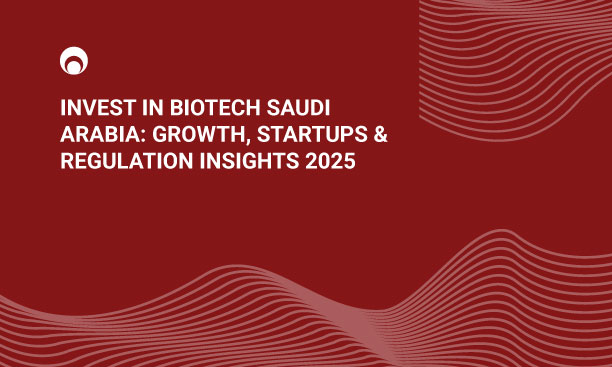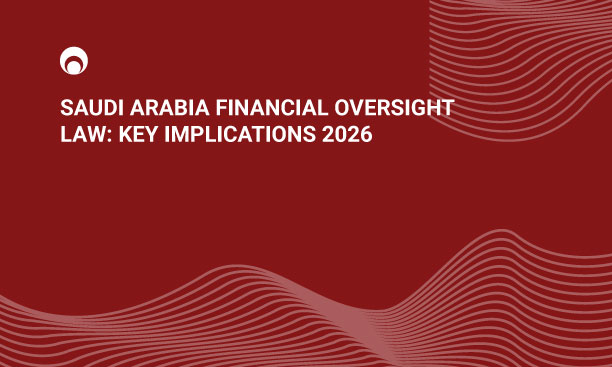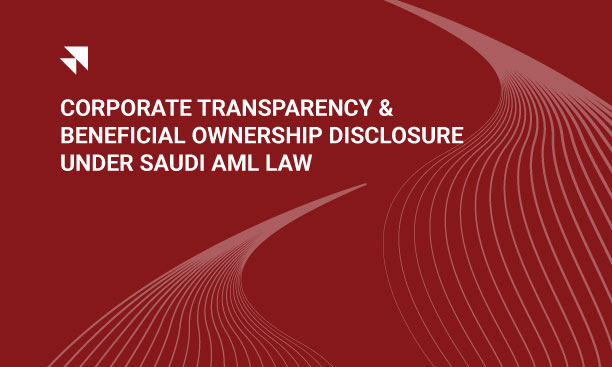Saudi Arabia is undergoing a major transformation. The Kingdom is turning to biotechnology as part of Vision 2030 to diversify its oil-based economy, strengthen healthcare, and build a regional and global biotech hub. The government is creating a strong regulatory, legal, and infrastructure framework to attract innovation, licensing, and international partnerships in the biotech sector.
This article explores investment opportunities in Saudi biotech, the regulatory environment, the rise of startups, and how foreign investors can participate in this fast-growing field.
Biotech Investment Opportunities in Saudi Arabia
The government of Saudi Arabia has expressed interest in its desire to ensure that biotech plays a key role in its economic development. Some of the levers and opportunities of investment consist of:
- National Biotechnology Strategy (2024): It focuses on vaccine production, biologics and biosimilars, genomics, and agricultural biotechnology for food security.
- R&D spending: The Kingdom plans to allocate 2.5% of GDP to research and development by 2040, representing over USD 16 billion in biotech and genomics projects.
- Local biomanufacturing: High potential exists in producing vaccines, biosimilars, and biologics domestically, supported by government incentives and the goal to reduce imports.
- Agritech expansion: Agricultural biotechnology is growing fast, improving crop genetics, yield in dry climates, water efficiency, and food self-sufficiency.
- Startup ecosystem: Venture programs like Fast Forward and Badir Biotechnology Incubator have driven over SAR 38 million (USD 10–11 million) in recent biotech funding.
- New biotech funds: Japan’s SBI Holdings plans to launch a USD 100 million Saudi biotech fund with local venture partners.
They indicate the coincidence of both supply (capabilities, infrastructure, regulatory push) and demand (healthcare, food security, regional markets) in providing fertile ground on which biotech investment can be made.
Saudi Arabia Regulations for Biotechnology Companies
There is regulation of biotech in the field of pharmaceuticals, biologics, clinical trials, agricultural biotech, and medical devices. The following are some of the regulatory considerations:
- The focal regulatory institution in pharmaceuticals, biologic, medical equipment, diagnostics, etc. is the Saudi Food and Drug Authority (SFDA). Its 2023-2027 strategic plan focuses on the control of new biotech products, partnership enhancement, facilitating innovation, and enabling investors.
- Saudi Arabia follows the norms of international harmonization. On one such case, SFDA is currently included in the management committee of International Council on Harmonization (ICH).
- In the case of clinical trials, protocols are to be registered in the Saudi Clinical Trials Registry, protocols are to be evaluated by the SFDA and under the good clinical practice (GCP), inspections are to be performed, oversight as well as ethics review is required, etc.
- Medical device laws include importation, distribution, storage and production of medical devices fall under the SFDA regulation. The licenses required include establishment licenses, import licenses and Quality Management Systems compliance (e.g. ISO 13485).
- Agricultural biotech regulation: Importation of Agricultural biotech products are permitted provided they are marked, in case genetically engineered content in them surpasses a given percentage (e.g. >1%). Animals, birds, and fish which are genetically modified are usually not imported. Limited local business GE-plant work.
Rules are still being adaptable, especially with the policies in Vision 2030, and newer legislation (e.g. investment law reforms) which influence licensing and foreign involvement.
Biotech Startups in Saudi Arabia
One of the aspects of Saudi biotech that is gradually gaining visibility and significance is startups. Some highlights:
- Badir Biotechnology incubator (subsidiary of King Abdulaziz city of science and technology KACST) has assisted biotech startups, in commercializing and research translation, funding, etc. It has funded early-stage biotech ventures (in the recent years) summing to something like SAR 38 million (which translates to USD 10 million).
- Innovation programs, acceleration programs, mentoring programs are being developed. Indicatively, the ministry of health introduced biotechnology accelerator program with mentoring, capacity building, networking as well as commercialization support.
- People are paying increasing attention to genomics research, precision medicine, diagnostics and treatment pipelines. Translational research is being developed by the Saudi Genome Program, and health institutions among others.
- Recent investments in facilities indicate that start-ups are accompanied by infrastructures. MS Pharma opened a biologics production plant that was SFDA-approved as GMP; this increases both startup and manufacturing capacity.
Access to late-stage capital, regulatory complexity, talent, and scale continue to be issues to startups, but the pace has been solid.
Foreign Investors in Saudi Biotech Sector
Encouragement and facilitation of foreign investment is being actively promoted but with regulatory and practical considerations:
- There is a new Investment Law (2024) which provides equal treatment to both the local and foreign investors in a similar situation. In most instances, the law substitutes the outdated licensing standards with registration.
- Foreign investors may organize a manufacturing or biotech establishment through MISA (Ministry of Investment). The Ministry serves to be the one-stop shop where it is easy to permit, grant incentives, make registration etc.
- Existence of global partnerships/MoU with international organizations (such as Illumina, Amgen, Vertex) denotes that foreign firms are willing to localize sections of their business, clinical research, and diagnostics among others.
- In case of biologics / biosimilars, local manufacturing through licensing agreements is done. Such cases as SAUDIBIO (insulin and biologics) that collaborate with companies and manufactures locally. When it involves local manufacturing, such alliances frequently have regulatory advantages (e.g. expedited approval, price favors).
- Foreign firms must deal with Saudi regulatory regulations (e.g. SFDA registration, product registration, marketing authorizations, IP issues, licensing) and need to take joint ventures with local firms to facilitate entry. And there is the requirement regarding clinical trial approvals, ethics, etc.
In general, Saudi Arabia tries to reduce barriers to foreign biotech investors, although complete awareness of the regulatory climate and local alliances is significant.
Healthcare Innovation and Biotech Law in Saudi Arabia
The legislative system of biotech and healthcare innovation is broadening in Saudi Arabia. The major legal and innovative law considerations are:
- Clinical Trials Law: A new law framework is emerging that concerns specifically the clinical trials and specifies the rights, protection, supervising, ethical standards, registration, and regulatory supervision.
- Intellectual Property/ Licensing Law: In the case of biotech companies that develop biologics or advanced therapies, licensing (innovation licensing and manufacturing licensing) is also regulated when foreign patents, technologies or trade secrets are at stake. The local manufacturing under license usually requires written consent of the licensing (innovating) company.
- Biosimilars regulation: The SFDA has set guidelines regarding biosimilars: demonstration of similarity to reference products, CMC (chemistry, manufacturing, controls) criteria; clinical or in some cases statistical / functional clinical, assuring safety, efficacy, quality.
- Medical Devices Law: The law defines the devices in a broad way which includes design, manufacture, import, distribution, storage. The establishments dealing with devices must be licensed. There should be quality systems (e.g. ISO 13485). Non-compliance is an offense.
- Agricultural Biotechnology and Biosafety Regulation: In the case of genetically engineered organisms (plants, etc.), it has import regulations, labeling, GSO (Gulf Standardization Organization) regulations and international protocols signatures e.g. Cartagena Protocol on Biosafety.
They are updating these laws; the Kingdom tries to reconcile innovation with safety, health of people and international standards.
Biotechnology Licensing Requirements in Saudi Arabia
Getting proper licenses is crucial. Below are the major licensing requirements and process issues:
| Type of License / Area | Issuing Authority | Key Requirements | Specific Notes / Sub-Requirements |
| Product registration for pharmaceutical / biologic / biosimilar | SFDA | Evidence of safety, quality, efficacy; CMC data; reference product comparability; full dossier submission (often using electronic common technical document, eCTD) | For biologics: GMP compliance; often local manufacturing under license requires the innovator’s written approval. |
| Manufacturing License (Pharma / Biologics / Biomanufacturing facilities) | Ministry of Investment (MISA) and SFDA (for GMP, oversight) | Company registration, audited financial statements (especially for foreign parent); facility meeting GMP and SFDA standards; equipment and lab infrastructure; QC, bioanalytical labs; sometimes requirements to sell certain % locally; environmental / safety / biosecurity compliance. | |
| Clinical Trials Approval & Regulation | SFDA / Clinical Trials Administration | Protocol submission; ethics review (IRBs); informed consent forms; site qualifications; lab practices (GLP where applicable); registration in Saudi Clinical Trials Registry; subject protection; trial monitoring. | |
| Medical Device Import / Distribution / Manufacturing | SFDA (via licenses like MDEL, MDIL) | Facility licensing; compliance with QMS (ISO 13485); facility permits (municipality, civil defense); fees; proper product registration and labeling; if manufacturing locally, manufacturing license. | |
| Agricultural / Food Biotechnology (GE plants / imports) | GSO + Saudi relevant ministries (agriculture, food safety) | Labeling if GE content > certain thresholds; import permits/licenses; compliance with biosafety protocols; restrictions on certain biotech organisms (e.g. animals, fish etc.). |
Other Licensing / Compliance Considerations
- Biologics and pharmaceuticals must comply with Good Manufacturing Practice (GMP); typically, audits and design of facilities ought to match those used internationally (e.g. equivalent to FDA / EMA where necessary) in the event of export ambitions.
- Regulatory timelines SFDA has been endeavoring to reduce regulatory approval times. Indicatively, Saudi has asserted that in its material of biotech hub, it has been able to cut down its clinical trial approvals to as short as 120 days compared to an estimated 270 days.
- The entities also must adhere to the moral requirements: human subjects protection, licensing IRBs, observation of legislation on research ethics, etc.
Challenges & Risks
While the trajectory is promising, there are still risks and challenges to be aware of:
- Regulatory complexity and evolving law: Many regulations are new or changing. Companies face legal uncertainty in interpretation, enforcement, and compliance.
- Talent and expertise scarcity: Biotech R&D in biologics, gene therapy, and advanced diagnostics requires skilled scientists, bioengineers, and regulatory experts. Local supply remains limited.
- Capital intensity and risk: Biotech development is expensive and has long timelines; risks in clinical trials, manufacturing scale-up, regulatory delays can be significant.
- IP protection and licensing negotiation: Foreign innovators must negotiate licensing, technology transfer, sometimes local production, which can affect margins, control.
- Market dynamics & cost pressures: Pricing, reimbursement, localization requirements, and competition (including imported biologics) can affect viability.
Why Investing Now Makes Sense
Timing is good, despite the difficulties:
- The Kingdom has taken policy, legislative, and financing steps to assist with biotech; there are incentives, investment funds, and accelerators.
- Infrastructure is being established: biologics manufactures (the facility of MS Pharma), regulatory maturity (the status of SFDA, capacities of clinical trials, etc.).
- There is a large domestic market and increasing health, diagnostics, preventive, agricultural demand. MENA has good regional export potential.
- Biotech around the world is on fire; early involvement in Saudi can present opportunity (cost, regulatory incentives, market access).
Conclusion
Saudi Arabia is rapidly emerging as a biotech leader. The Kingdom offers strong opportunities through its strategic vision, legal reforms, and growing startup ecosystem. Foreign investors can benefit from clear regulations and a supportive licensing framework. Success requires compliance with laws, forming local partnerships, managing risks, and aligning innovations with health, agriculture, and societal needs.
Frequently Asked Questions
Saudi Arabia launched the strategy in early 2024 to become a major biotech hub. It focuses on vaccines, biomanufacturing (biologics and biosimilars), genomics integration in healthcare, and agricultural biotechnology. The plan also aims to create jobs, boost GDP, and diversify the non-oil economy.
Approval time depends on the trial type, product, and sponsor readiness. Recent reforms reduced some approvals to under 120 days.
Foreign investors can now own 100% of most biotech businesses. They must register with the Ministry of Investment (MISA) and obtain licensing from the SFDA or other relevant bodies.
Companies must prove comparability with the reference biologic. They also need to submit complete dossiers covering quality, safety, efficacy, clinical studies, and manufacturing (CMC/GMO compliance).






